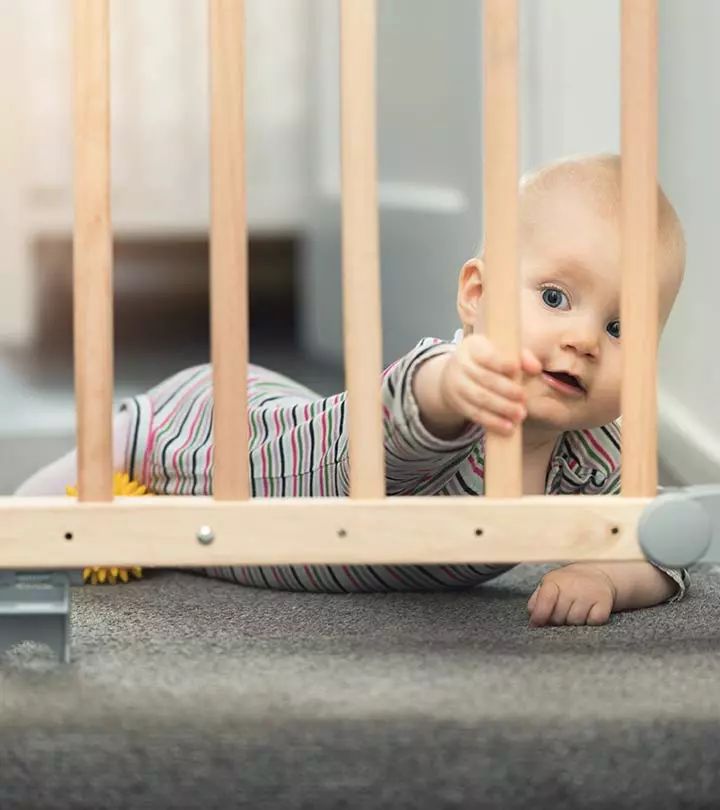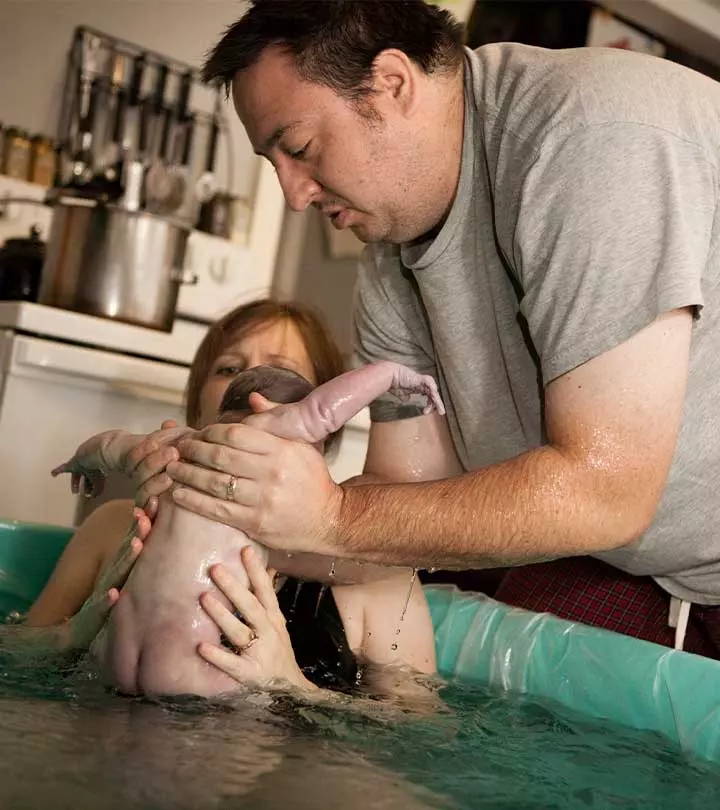

Image: iStock
When you have a little mischief-maker who doesn’t know what to do through the day, you could be in trouble ;) The situation only becomes more difficult if you have other children to nurse or attend to. The worst part is that you will not have the heart to watch television or read a book and ignore your toddler. In fact, he will not give you the time to ignore him. Before you can do that, he would have already pulled out a thing, broken or torn it and before it can turn any more horrid, the you will be running after him and the house already.

Here is how you could structure a day for your toddler, so you will have some time to breathe.
1. When To Wake Him Up – 7 or 8 am
A toddler needs 11-12 hours of sleep. So if he fell asleep at 8 pm last evening, I wouldn’t want to wake him up at least till 7 or 8 in the morning. He doesn’t have to hurry up for anything. When he’s grown up, he will have lesser sleep to himself any way. So allow him to savor as much sleep as possible. Good sleep means good growth for your toddler. His metabolism and growth are quite determined by how well he sleeps.
2. Bathroom Training – 8 to 9am
Potty training your toddler as soon as he wakes up is important. From emptying his bladder to taking a bath, the sooner your toddler is trained to this part of the routine, the easier it will be for him to imbibe personal hygiene as he grows up. A lot of children are put on diapers even until they turn five. It might not be a healthy habit as the child will take time to exercise control on these reflexes.
3. Breakfast Time – 9 am
Even before your child can eat a heavy breakfast, keeping him on milk is an ideal thing to do. Milk is a complete food for your toddler. So a glass of milk on an empty stomach will work wonders. Warm milk is good at inducing your child’s bowel movements as well. A breakfast could comprise oatmeal, a portion of fruit, eggs, or two French toasts.
4. Play Time – 9.30-11am
If it’s a bright sunny day (of winters) allow him to play outdoors. Exposing him to sunlight for a while means he gets his dose of vitamin D. Moreover, the fresh-air is good for you child. Set a mini-park in your backyard so while he is playing you could keep an eye on him through the kitchen. And if he chooses to play indoors, put him on a good number of indoor activities.
5. Snack Time – 11 am
Getting your child to eat or drink once every two hours isn’t a bad idea. Kids are full of energy. Their activities metabolize food pretty quickly, and they will be asking for more.
6. Converse with your child as much as possible in the interim time. It will help him lap up new words faster.
7. Lunch Time: 12.30pm
A full-fledged lunch with necessary proteins, vitamins, minerals, carbs and fiber is all that he needs. Include some water or fresh juice to boost this healthy lunch.
8. Make sure your child has adequate water intermittently. Put the pop cans out his reach.
9. Napping soon after lunch must be avoided. Give a break of half an hour to one hour.
10. In the meanwhile train him on putting back the toys at their regular place.
11. Nap time – 2 to 4pm.
12. Evening play time – 4 to 5pm,
13. Make supper at 5 pm.
14. Have supper by 6 pm.
15. Put your child to sleep by 7 pm. He will fall asleep if he has had good exercise during the day. Else, you can read him some fairy tales. Talk about your favorite things. Tell him how things work. If he still doesn’t want to sleep, pretend to fall asleep with him. And he will sleep too with the silence prevailing.
16. Clean up your kitchen the latest by 9 pm. Make a to-do list for the following day. Decide the menu a day in advance so you don’t waste time the next day.
To avoid disrupting the timetable, you might want to bear in mind few Don’ts with your toddler, so he doesn’t come in your way of relaxation:
17. Donât Wait Until His Hunger Pangs Strike
Your child will be very noisy and cranky if he is already hungry. That is simply one way to express his hunger. Don’t expect him to run up to you and ask you to make something to eat. He won’t say, “Mom, I’m hungry.” He’d rather throw things apart to get that message through to you. What you must do in the meanwhile is offer him something to eat an hour before his lunch is prepared. That will give you the room and the time to cook the next meal without any distractions.
18. Donât Leave Him Unattended At Any Point Of Time
When you get busy with your chores, never ignore you toddler in the other room. Having a horse’s eye is the key. Hand out to him a plethora of articles to keep him busy while you are attending to your task. Should you flit in and out of the room, take your child along with you. Leaving him alone will only give him more opportunity to mess up.
19. There Is No Such Thing As A Monster
There might be times when you will find your toddler looking for you (or run after you) as soon as you leave the room, especially in the evenings. It’s fear of ‘monsters’. Kids may not tell you, but leaving them unchaperoned is equivalent to inciting fear.
20. Yelling And Spanking Do No Good
If your toddler is at the top of his pitch, it’s likely that he wants attention. Don’t get vexed up at his antics. Yelling and spanking will make matters only worse. Forbearance is the key.
21. Too Much Warning Is As Good As Falling On Deaf Ears
Your child will no longer pay heed to your words of warning if it is leashed out too much. The nagging on ‘do this’ or ‘do that’ are not too sweet to follow. In fact, their ears become too immune to be interested in listening to what you say in the first place. Make monitoring a bit more entertaining.
How did you manage raising your children while caring for the household? Did you have time for yourself? We would love to hear from you!
Community Experiences
Join the conversation and become a part of our nurturing community! Share your stories, experiences, and insights to connect with fellow parents.












